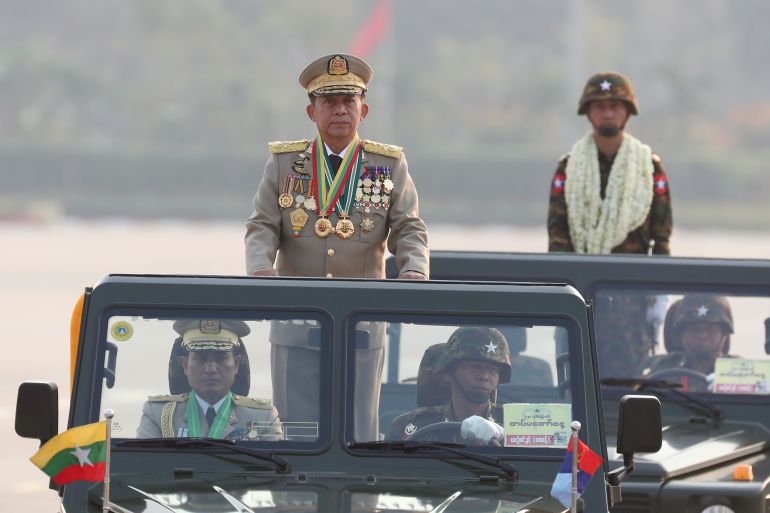Myanmar military commutes 38 death sentences as part of amnesty
Four coup opponents were executed last July and more than 100 people are on death row for political reasons.

Myanmar’s military has commuted the death sentences of 38 people as part of this week’s amnesty for more than 2,000 political prisoners.
In a brief statement published in Friday’s state-run Global New Light of Myanmar, the country’s human rights commission said it was “deeply delighted” at the decision to commute the death sentences to life imprisonment and also at the release of those jailed for opposing the coup.
Keep reading
list of 4 itemsChina’s foreign minister touts ‘friendship’ on Myanmar visit
Footage by Japanese journalist killed in Myanmar in 2007 released
Ex-UN chief Ban Ki-moon to do ‘all he can’ for peace in Myanmar
“The Commission hopes that similar positive steps will be continued in future,” the statement said.
It did not elaborate on the circumstances of the prisoners who had their sentences commuted.
Myanmar’s military, which seized power from the elected government in February 2021, has used brutal force against those opposed to its rule in a fruitless attempt to quell mass protests that have evolved into an armed uprising.
Many civilians have joined People’s Defence Forces set up by the National Unity Government of elected legislators thrown out of office by the generals, with some working alongside long-established ethnic armed groups.
The military has characterised its opponents as “terrorists”, and there are currently 112 post-coup prisoners on death row, according to the Assistance Association for Political Prisoners, which has been monitoring the crackdown.
In July last year, the generals provoked shock worldwide by executing four prominent political activists in the country’s first use of capital punishment since the 1980s. The four men who were killed included Phyo Zeya Thaw, a prominent ally of now-jailed civilian leader and Nobel Peace Prize laureate Aung San Suu Kyi.
Dissidents are tried behind closed doors in secretive military-run courts that rights groups say fail to uphold international due process and fair trial standards.
According to Human Rights Watch, convictions are frequently based on confessions obtained by torture and other ill-treatment, including frequent beatings.
Last November, a military tribunal sentenced seven university students to hang for shooting dead a former military officer in Yangon. The same month, three other men were sentenced to death for the killing of a local official.
In a statement afterwards, Human Rights Watch called for those sentences to be commuted.